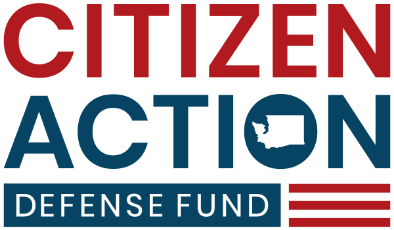
Ever since former Governor Inslee and his Olympia allies enacted the Climate Commitment Act (“CCA”) in 2021, proponents have struggled to obscure its myriad adverse consequences. Half-baked efforts include the Department of Ecology’s ongoing refusal to publish the full numbers on emission reductions traceable to CCA programs—a scheme that the Citizen Action Defense Fund (CADF) and the Washington Policy Center are now fighting tooth and nail to uncover.
Chief among advocates’ obfuscations was an insistence, despite all evidence, that the CCA would help rather than hurt hardworking Washingtonians’ bottom line. Inslee notoriously announced that emissions caps, set to increase every year, would only cost consumers “pennies” per gallon at the pump. Here, again, CADF has worked tirelessly to vindicate a Department of Transportation whistleblower who was essentially fired for refusing to “jimmy” published numbers and hide the actual pricetag of 40 to 50 cents per gallon (that’s a lot of pennies!). For years, then, misdirection was rule. Now, it appears proponents are dropping all pretense and instead admitting—and hoping few will notice or care—that the CCA is a massive taxpayer and consumer blackhole.
With Inslee 2.0—for those keeping score, former Attorney General Bob Ferguson—now safely ensconced in the Governor’s Mansion (and evidently more focused on publicity stunts against the Trump administration than serving the Evergreen), the CCA crowd no longer insist that their ill-purposed statutory regime will improve the average Washingtonian’s financial situation. The push, this legislative session, to introduce a so-called “Road Usage Charge” (“RUC”) sends the new message loud and clear: Yes, the CCA will cost us all dearly. But at least now we’re admitting it!
See, with creeping emissions caps and expanding electric-vehicle mandates before the technology has shown itself cheap enough for mass consumption, Washington’s gas-tax revenues are slated for a precipitous—and exponential—decline. Another casualty of the CCA—though not that we are mourning the twilight of yet another tax on everyday life.
But strapped for cash in view of ballooning costs related to the CCA, some lawmakers have found a way to keep every day pricey. Enter the RUC, which would impose a tax (its authors conveniently call it an “assessment” to try to avoid pesky constitutional challenges—more on that below) on the mileage increase from sale to sale. So if you run a private business that requires serious road time, congratulations! You have been selected to subsidize Olympia for its abysmal policymaking. (Unless you are engaged in government business—which is magically exempt.)
But don’t worry—yet. Well, do. But as it stands, the proposed RUC would remain at least partly voluntary until its full mandatory implementation in 2029. For now, the program runs on an honor system. That’s right, when you sell your car the government kindly asks that you tell them what your odometer reads now versus at purchase. I am not a clairvoyant, but I predict an upsurge in Washingtonians who magically start “driving” far less frequently than ever before.
Of course, that is until the program becomes mandatory, and the state begins digitally tracking everyone’s odometers. Proponents tell us not to worry because this won’t happen for another few years. In addition, there is a mechanism to obtain a refund for your gas tax payments to help avoid double taxation. But ask farmers how promises of exemption from “cap and invest” fuel charges worked out for them. Spoiler alert: they didn’t.
So, unless the government hopes to make up for lost gas-tax revenue on the scout’s honor of Washingtonians who have been squeezed enough as it is and keeps a refund program in place that costs the state money, this incredible violation of privacy is all but inevitable and will continue to increase the cost of driving for everyone in the state.
We at CADF sound the alarm on a good many iterations of Olympia’s misfeasance. Perhaps this is not their worst one yet, but in its unapologetic flagrancy it is a testament to how far we have fallen. Big-government types in the capitol feel bold enough, and sufficiently insulated from the voters’ ire, that instead of lying about the consequences of their poor policymaking, simply tell the people that they will slightly delay legal compulsion. Oh, and the privacy concerns with bureaucratic access to the computerized components in our vehicles is a whole other can of Orwellian worms. Maybe next time . . .
Alki,
Sam Spiegelman

